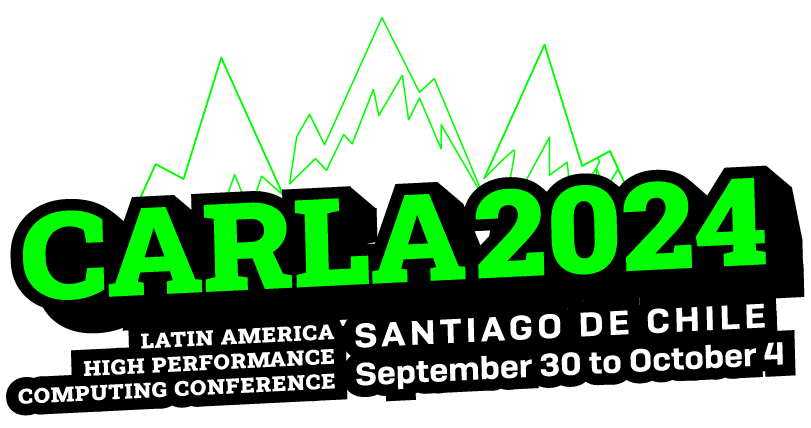Chair(s):
Paula Verghelet
Universidad de Buenos Aires, Argentina.
pverghelet@dc.uba.ar
Patricia Tissera
Pontificia Universidad Católica de Chile, Chile.
patricia.tissera@uc.cl
Paola A. Buitrago
Pittsburgh Supercomputing Center, Carnegie Mellon University, United States.
pbuitrag@andrew.cmu.edu
Damaris Mendoza
University of Cartagena, Colombia.
damarismendoza976@gmail.com

Advancing Energy and Resource Efficiency in Data Centers
Description:
In the digital age, data centers are pivotal, supporting complex applications from internet searches to scientific research, including high-performance computing (HPC) and cloud services. Despite their critical role, the environmental footprint of data center operations poses significant challenges. The burgeoning demand for computing and storage capacity outstrips available resources, necessitating a holistic approach to development that balances ecological, economic, social, and technological considerations.
Modern data centers, akin to small towns in their energy consumption, present an urgent need for energy- efficient solutions to mitigate their environmental impact. Advances in performance-per-watt (Watts/FLOPS) technologies offer promising avenues for more sustainable operations. Beyond hardware efficiencies, software optimizations play a crucial role in reducing energy and resource consumption. The lifecycle management of hardware, efficient computing, cooling strategies, and the potential for waste heat reuse further complicate the sustainability equation.
This workshop aims to foster dialogue on innovative strategies for enhancing the energy and resource efficiency of data centers. By bridging the gap between current practices and cutting-edge research, we seek to highlight scalable, flexible technologies and methodologies that promise not only economic sustainability but also significant environmental benefits.
We invite contributions on a wide range of topics, including, but not limited to:
- Green Data Center IT and Software
- System and Infrastructure Energy Efficiency Optimization
- Assessment Models for Energy and Resource Efficiency
- Resource Conservation via Smart Technologies and AI
- Real-Time Energy Consumption Prediction and Regulation through Machine Learning
- Efficient Facility Infrastructures and Hybrid Cooling Technologies
- Waste Heat Reuse and Community Heating Integrations
- Scalable, Hybrid, and Flexible Compute and Data System Architectures
- Energy Efficiency Methods Enabled by Container and Workflow Frameworks
- Green Coding Practices in High-Performance Software
- Scheduling Algorithms for Optimal Energy Utilization
Through collaborative discussions, case studies, and technical presentations, the workshop aims to catalyze the adoption of sustainable practices within the data centers. By addressing both hardware and software aspects of energy efficiency, the workshop will contribute to the development of data centers that are both powerful and environmentally responsible, marking a significant step towards the sustainable advancement of global computing infrastructure.
Workshop website
https://ee-workshop.for.lrz.de/
Program Committee
- Dieter Kranzlmüller, Leibniz Supercomputing Centre, Munich, Germany
- Andrew Grimshaw, Lancium Compute, Charlottesville, USA
- Martin Schulz, Technical University of Munich, Germany
- Shantenu Jha, Rutgers University, New Jersey, USA
- Dan Stanzione, Texas Advanced Computing Center, Austin, USA
- Ewa Deelman, University of Southern California, Los Angeles, USA
- Adam Belloum, University of Amsterdam, The Netherlands
- Jason Maassen, Netherlands eScience Center, Amsterdam, The Netherlands
- Nam Thoai, Ho Chi Minh City University of Technology, Vietnam
- Marian Bubak, Academic Computer Centre Cyfronet AGH, Krakow, Poland
- Ladislav Hluchy, Slovak Academy of Sciences, Bratislava, Slovakia
